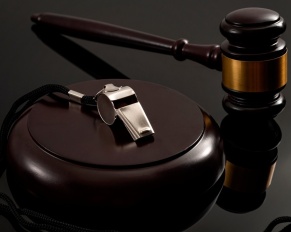A Split-Second Shock, A Long Road Ahead An electrical shock at work can happen in an instant, but its consequences…


A Split-Second Shock, A Long Road Ahead An electrical shock at work can happen in an instant, but its consequences…

Whistleblowing means to report illegal, unethical, or unsafe practices within an organization to authorities, keeping these organizations operating in an…

In May 2020, Dr. Rick Bright, the director of the United States Biomedical Advanced Research and Development Authority, blew the…

The Whistleblower Protection Act (WPA) is an important law that protects federal employees who report their employers for misconduct and…